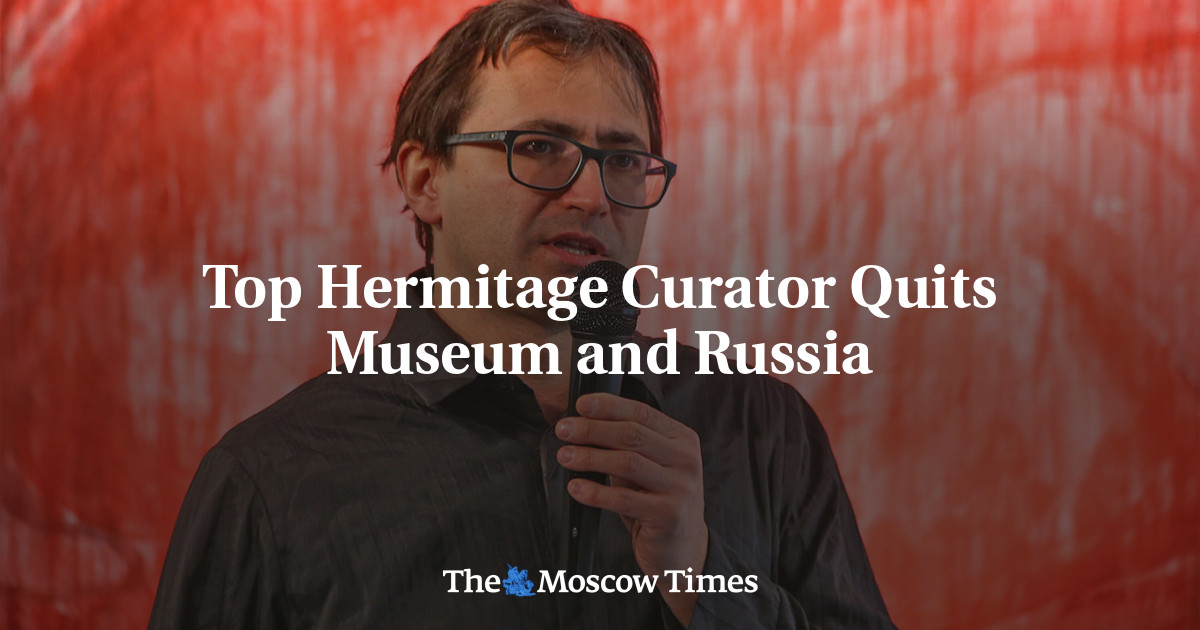
On Sunday Dmitry Ozerkov, a top curator at the Hermitage Museum in St. Petersburg, announced in an Instagram post that he had resigned from the museum and left Russia.
“I left because I don’t intend to have anything in common with today’s Russia.”
Ozerkov worked at the Hermitage for 22 years, first as curator of the department of 15-18th century French engravings, then since 2007 as the head of the department of contemporary art.
He was also director of the project Hermitage 20/21, which he called a “powerful project” that “was built on dialogue and mutual respect for languages and countries, nationalities and religions, history and modernity.” But after the war began, he continued, “dialogue and respect ceased to mean anything in Russia, the news were replaced by propaganda that says nothing about Russian armed forces to be accused of numerous crimes against the civilian population. As a Russian citizen I saw this shame as my own fault too and I shared this opinion. Then my choice was to stop doing anything in and for today’s Russia.”
Ozerkov wrote that he hadn’t participated in museum activities since March and left four other posts he held, including his position in the City Council for Culture, a program of the Governor of St. Petersburg. Ozerkov had also taught at several institutions of higher learning, including the European University of St. Petersburg.
The final decision to quit the Hermitage was made after the Hermitage director, Mikhail Piotrovsky, gave an interview to Rossiskaya gazeta in June saying, in part, that war was “a nation’s self-assertion” and that Russia had “entered as new era” and would “achieve great global transformations.”
“I salute all for whom the Greek word Exodus, used by the writers of the Septuagint, has become the only possible way out of the current situation,” Ozerkov wrote in conclusion.
“Russia squeezed out all of us who wanted nothing but good to its culture.”





